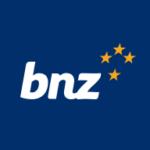Company values: the foundation for adapting and evolving
25 Nov 2021
We’re proud to support Deloitte Fast 50, which recognises 50 of the fastest growing businesses in New Zealand each year. Here, we share Deloitte’s profile of BNZ customer and Fast 50 winner, Supacolour, which featured in Deloitte’s 2021 ezine.
A holy grail product. That’s how Supacolour founder Mike Modgill describes his company’s heat transfers. In 2016, a meeting of the minds between Mike and business partner, Bill Armitt, led to the creation of a high-quality transfer product for use on textiles that was durable, soft and unmatched in colour range.
A combination of digital print and screenprint, Supacolour transfers pop with a vibrance said to be unrivalled by others and with minimal limitations on the range of colours available – it’s a product that sits squarely in the middle of the venn diagram between clarity and vibrancy. Furthermore, in New Zealand where demand tends to be in smaller quantities, this product was perfect for achieving quality transfers suitable for short print runs.
While the business has gone from strength to strength, picking up pace in New Zealand and Australia before extending into the US and the UK, it hasn’t been all smooth sailing. With factories spread across the globe, logistical challenges brought on by COVID-19 were bound to hamper the movement of their product across countries, states and borders.
Supacolour’s response was to maximise the possibilities afforded by their factories across the globe experiencing lockdowns at different times. When Los Angeles was issued a stay at home order, Supacolour were shipping their heat transfers from the UK to the US, and vice versa when the UK was locked down. A response that allowed them to live up to the ‘supafast’ value proposition they pride themselves on and ensure they could continue to operate in some way, in some place, at any given time.
The global pandemic also brought an unanticipated, and valuable, business opportunity with an upsurge in demand for at-home creators. As jobs and incomes were threatened by lockdowns, many turned to alternative income streams to provide more financial security. Some found ways to turn their creative passions into bona-fide businesses and translate hobbies into steady secondary sources of income.
Retailing between $200 – $400 USD, heat presses are now readily accessible to the everyday consumer through retail networks like Amazon, allowing anyone to start producing their own customised apparel. The barriers to entry have lowered significantly and with that, the need for expensive equipment, large factories, technical experience, retail spaces and high investment to create and sell unique pieces has disappeared.
“A lot of what we do is selling to people who have heat presses in their garage, making t-shirts for their friends” says Mike, referencing the burgeoning gig economy. “Most businesses pivoted their product range, we left ours the same, but we pivoted our market”. Mike highlights the shift from business to business sales to business to consumer as crucial to Supacolour’s ability to stay on top.
Historically, high quality transfers were only available to big names who were launching product lines of thousands, which also came with long lead times. Mike and his team realised they could quickly bring a high-quality product to the mass market, noting “anyone can wait two or three days to buy 20 of something. We’ve made a very powerful product that was traditionally only available to big name companies and we’ve made it available to anyone with a heat press”.
That resulted in another key shift – the realisation that their customers didn’t need quantities of 40, 30, or even 20. This new market is operating on a smaller scale and with shorter production runs. That’s when Supacolour lowered their minimum order quantity to 10, noticing an instant impact. In the US, production grew from 1,200 orders to 1,800 a week in the first few weeks alone. Even in its earliest stages of roll-out, Mike recognises the significance of that shift – “it’s one of the most powerful things we’ve done in a marketing sense. It closed our closest US competitors out of the market”.
The need for adaptation and agility is clear, with Supacolour able to navigate a changing world with relative ease afforded by global spread, an open-minded approach to market segmentation and smart marketing. The future is looking bright with Supacolour on the expansion route with further locations being explored in North America and Europe. Supacolour continues to take its product to the world, staying true to their “supaeasy” and “supafast” values.
Any views expressed in this article are the views of Deloitte and do not necessarily represent the views of BNZ, or its related entities. This article is solely for information purposes and is not intended to be financial advice. If you need help, please contact BNZ or your financial adviser. Neither BNZ nor any person involved in this article accepts any liability for any direct or indirect loss or damage arising out of the use of, or reliance on, all or any part of the content.



